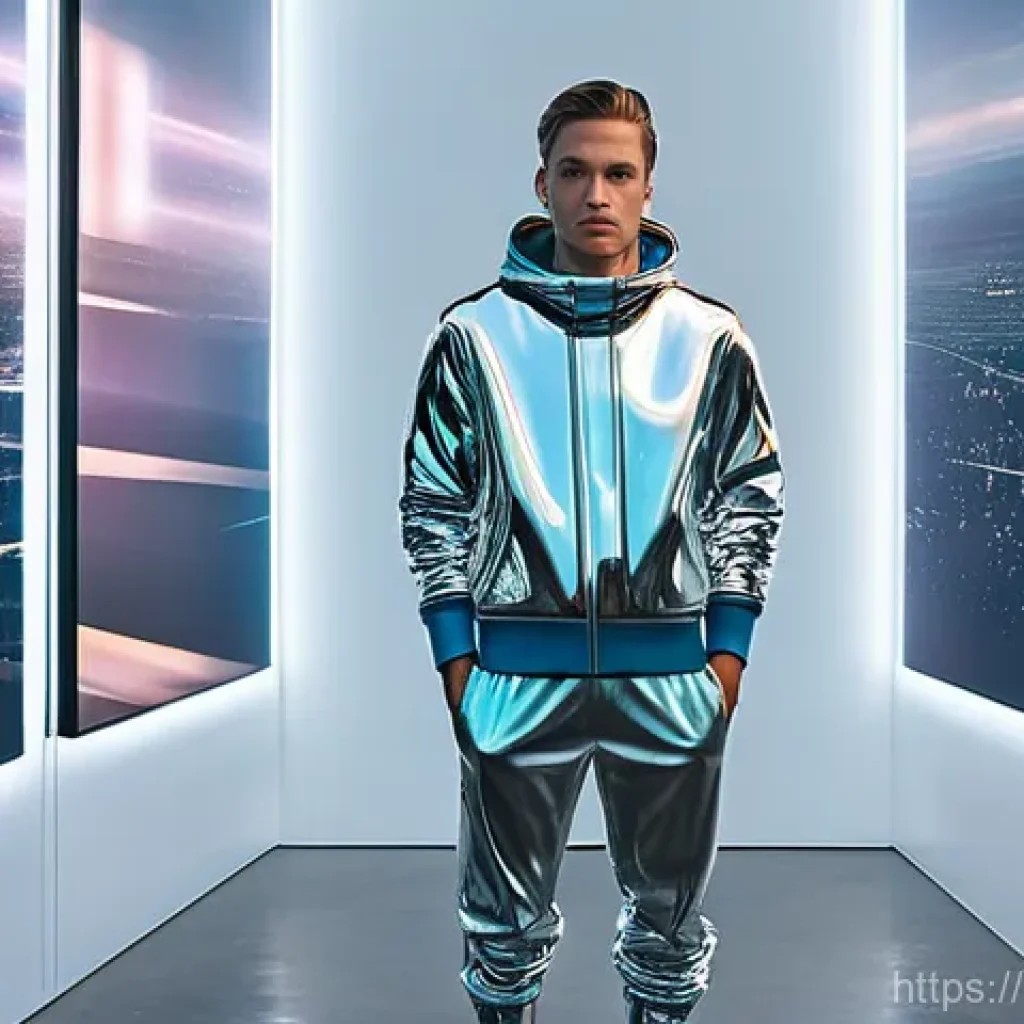Hey there, fellow cosmic explorers! Have you ever found yourself gazing at the night sky, feeling a strange tug that there’s more to our universe than what meets the eye?
I certainly have! Just recently, while falling down a rabbit hole of cutting-edge physics, I stumbled upon something truly mind-bending that’s been buzzing everywhere from scientific journals to blockbuster movies: the Multiverse Theory.
It’s not just a fantastical concept from your favorite sci-fi series anymore; this idea that our universe might just be one of countless others, each potentially with its own unique laws of physics, is gaining serious traction and sparking intense debate among the brightest minds.
Imagine, for a moment, a universe where every choice you didn’t make led to a different ‘you’ living a different life. Think about the philosophical questions it raises about free will, destiny, and even our very identity!
It challenges everything we thought we knew, making us ponder our place in an unimaginably vast cosmic tapestry. From the elegant complexities of quantum mechanics, hinting at ‘Many-Worlds’ where every possibility branches into a new reality, to the grand scale of ‘bubble universes’ forming from cosmic inflation, the sheer scope of this theory is breathtaking.
What if new technological advancements, like those in quantum computing or even groundbreaking initiatives like Google’s Willow chip, could eventually offer glimpses into these parallel realms?
Scientists are constantly searching for subtle clues, perhaps hidden in the cosmic microwave background, that could confirm or challenge these daring hypotheses.
This isn’t just abstract science; it’s a concept that touches upon our deepest curiosities about existence itself. The implications are profound, stretching beyond physics to reshape our understanding of what ‘reality’ truly means.
If you’re as fascinated as I am by the tantalizing possibility of infinite parallel worlds and the mind-boggling questions they provoke, then get ready for an extraordinary journey.
Let’s unravel the mysteries of the Multiverse and discover what might lie beyond our own cosmic horizon!
Beyond Our Cosmic Shore: The Mind-Bending Reality of Parallel Worlds

Glimpses Through the Cosmic Looking Glass
It’s truly wild to think about, isn’t it? Just when you thought our universe was vast beyond comprehension, science throws a curveball that makes your head spin: the Multiverse.
I remember the first time I really dived into this concept, it felt less like a scientific theory and more like a scene from a blockbuster movie. But here we are, with serious physicists proposing that our universe might just be one of countless others, each potentially humming along with its own set of rules, its own history, and maybe, just maybe, its own version of you making entirely different life choices.
It’s a thought that humbles you, making your own daily worries seem both infinitely small and yet profoundly significant. The sheer scale of it all is almost too much to grasp, but that’s what makes it so utterly captivating.
I’ve spent countless evenings just staring at the stars, wondering what else is out there, beyond the reach of our telescopes, in these rumored parallel realities.
The Quantum Riddle: Many Worlds, Many Mes?
One of the most mind-bending aspects, for me, comes from quantum mechanics and the “Many-Worlds Interpretation.” Imagine a decision point in your life – say, choosing between coffee or tea this morning.
In the Many-Worlds view, both outcomes actually happen, each in a separate, branching universe. It’s not just a philosophical parlor trick; it’s a serious attempt to solve some of quantum physics’ most perplexing paradoxes.
When I first heard about Schrödinger’s cat, it felt abstract, but applying it to everyday choices makes it incredibly personal. Did I miss out on an amazing opportunity by turning left instead of right last week?
In some parallel universe, that other me might be living out that adventure! It certainly adds a layer of existential wonder to even the most mundane moments.
This isn’t about just probabilities anymore; it’s about actualized possibilities across an infinite cosmic landscape.
Echoes of Other Selves: What the Multiverse Means for You
A Different You, A Different Life
This is where the Multiverse theory gets truly personal and, frankly, a little spooky in the best way. If there are infinite universes, does that mean there’s a version of me who became an astronaut?
Or perhaps a rock star? Or someone who actually remembered to water their plants last week (a constant struggle for this me, I admit!). The implications for identity are profound.
We tend to think of ourselves as singular, unique beings defined by our experiences and choices. But if every possible choice leads to a new reality, then our identity becomes a mosaic spread across countless dimensions.
It really makes you reflect on the choices you’ve made and the paths you’ve taken. I sometimes wonder what advice a happier, more successful version of me from another universe might give this me.
It’s a fun, albeit slightly unsettling, thought experiment that can actually spark some introspection and encourage us to live more fully in *this* reality.
Reconciling Free Will with Infinite Realities
The concept of free will gets a serious workout when you consider the Multiverse. If every possible outcome exists, does that diminish the significance of our choices?
Or does it, paradoxically, amplify them? I’ve wrestled with this idea quite a bit. On one hand, it could feel like our decisions are pre-destined to occur *somewhere*, taking away some of the weight.
But on the other hand, the fact that *we* are experiencing *this* specific reality, *these* specific choices, makes our journey unique and precious. It forces you to consider the agency you have in shaping your present moment, regardless of what might be playing out in other dimensions.
I find it empowering, actually. It’s like, even if there are infinite versions of me, *this* me is the one making these decisions *right now*, and that still matters immensely.
The journey through these philosophical landscapes is just as exciting as the scientific one.
Quantum Leaps and Cosmic Bubbles: The Science Behind the Madness
From Inflationary Universes to Brane Worlds
Alright, let’s get into some of the nitty-gritty science, because it’s truly fascinating how these concepts are emerging from hardcore physics. One of the most compelling ideas comes from cosmic inflation theory.
Imagine the early universe expanding at an absolutely mind-boggling rate; some scientists propose that this inflation might never fully stop, perpetually spawning “bubble universes” that detach from our own, each with potentially different physical constants.
It’s like an ever-boiling pot where new bubbles constantly form and drift away. I find this particular model incredibly intuitive, almost poetic in its description of an endlessly fertile cosmic canvas.
Then there’s the concept of “brane worlds,” where our entire universe is just a membrane, or “brane,” floating in a higher-dimensional space, with other branes existing nearby.
Sometimes, these branes might even collide, leading to events like the Big Bang. It’s like our universe is just one sheet of paper in an infinitely tall stack!
The Hunt for Multiversal Signatures
So, how on earth do we even begin to look for evidence of something so vast and elusive? That’s the million-dollar question keeping physicists up at night!
Scientists are diligently searching for subtle “signatures” that these other universes might leave behind. One promising area is the cosmic microwave background (CMB) – the faint afterglow of the Big Bang.
Anomalies in the CMB, like cold spots or unusual patterns, could potentially be imprints from collisions with other bubble universes. Think of it like ripples in a pond caused by something invisible just beyond the edge.
Gravitational waves are another potential avenue. If our universe is a brane, perhaps ripples from other branes could manifest as unique gravitational wave patterns.
It’s a long shot, for sure, but the potential payoff is nothing short of revolutionary. Imagine the headlines if we ever found definitive proof! I get goosebumps just thinking about it.
Peeking Through the Veil: Are We Close to Proof?
Technological Horizons: What Could Reveal All?
While direct travel to another universe remains firmly in the realm of science fiction (for now!), advancements in technology are constantly pushing the boundaries of what we can observe and theorize.
High-precision telescopes and sophisticated data analysis are allowing us to scrutinize the cosmic microwave background with unprecedented detail. Projects like the James Webb Space Telescope are giving us glimpses into the very early universe, potentially offering clues to its fundamental structure and, perhaps, hints of inflationary physics that could support the Multiverse.
On the theoretical front, supercomputers are running simulations that explore the feasibility of different Multiverse models, helping physicists refine their hypotheses.
I’ve always been a bit of a tech enthusiast, and seeing how our tools are evolving makes me incredibly optimistic that if there *are* answers to be found, we’ll eventually develop the means to find them.
The human drive to explore and understand is truly unstoppable.
The Challenge of Confirmation: A Test of Faith?

Let’s be real, confirming the existence of a Multiverse is an incredibly daunting task, pushing the very limits of empirical science. How do you prove something that, by definition, exists outside our observable universe?
This is where the debate gets heated even among scientists. Some argue that without direct, falsifiable evidence, it remains a philosophical concept rather than a testable scientific theory.
Others contend that the logical consistency and explanatory power of the Multiverse (for example, in addressing the fine-tuning problem) give it significant weight.
It often feels like we’re balancing on a knife-edge between scientific rigor and imaginative exploration. Personally, I think it’s crucial to keep an open mind while demanding strong evidence.
The journey itself, the relentless pursuit of understanding, is what makes science so thrilling. It’s a testament to our intellectual curiosity, pushing us to ask the biggest questions imaginable.
The Philosophical Rabbit Hole: Identity, Destiny, and Infinite Possibilities
Finding Meaning in the Cosmic Ocean
If our universe is just one of many, how does that impact our sense of meaning and purpose? It’s a question that has kept me up at night, staring at the ceiling.
For some, the idea of infinite universes could make our own existence feel insignificant, a mere speck in an endless cosmic ocean. But I’ve come to view it differently.
For me, it amplifies the preciousness of *this* reality, *this* life, *these* experiences. Knowing that there are countless possibilities makes the one we are living all the more unique and special.
It’s a reminder to embrace the present, to cherish our connections, and to make the most of the singular journey we are on. It’s like finding a rare gem among billions of ordinary stones – the rarity makes it all the more beautiful.
The Multiverse, instead of diminishing us, can actually deepen our appreciation for our own existence.
The Ultimate “What If?”: A Playground for the Mind
The Multiverse theory is, if nothing else, an incredible intellectual playground. It allows us to explore the ultimate “what if?” scenarios in a way that transcends mere imagination.
What if gravity worked differently in another universe? What if time flowed backward? What if every single one of our deepest desires and fears played out in an alternate reality?
It sparks creativity and pushes the boundaries of our understanding of possibility itself. I often find myself daydreaming about these things, and it’s a fantastic way to stretch your mind and think outside the box.
It’s not just for physicists; writers, artists, and philosophers are all drawing inspiration from this mind-bending concept. It truly opens up a world (or should I say, *worlds*) of endless fascination, inviting us all to ponder the mysteries that lie beyond our immediate perception.
| Multiverse Concept | Brief Description | Key Implication |
|---|---|---|
| Many-Worlds Interpretation (MWI) | Every quantum measurement causes the universe to split into multiple branches, each representing a different outcome. | All possible outcomes of quantum events exist in separate, real universes. |
| Inflationary Multiverse | Eternal cosmic inflation creates an infinite number of “bubble universes” that constantly bud off from one another. | Our universe is just one of countless “bubbles” with potentially different physical laws. |
| Brane Multiverse | Our universe is a 3-dimensional membrane (brane) floating in a higher-dimensional space, alongside other branes. | Collisions between branes could explain the Big Bang and other cosmic phenomena. |
| Cyclic Multiverse | The universe undergoes an endless series of Big Bangs and Big Crunches, with each cycle potentially leading to different properties. | The universe constantly recycles itself, with new iterations arising from the ashes of the old. |
Navigating the Infinite: My Personal Take on the Multiverse’s Impact
A Humbling Perspective on Our Place
For me, personally, embracing the Multiverse theory, even as a possibility, has been incredibly humbling. It shifts our perspective from being the center of *the* universe to being just one tiny part of an unimaginably vast cosmic tapestry.
It makes you realize how much we still don’t know, how much more there is to discover. It’s a beautiful reminder of the endless wonders that science and philosophy continue to unveil.
I used to feel a bit overwhelmed by the sheer size of our own universe, but now, knowing there might be countless others, it paradoxically makes me feel more connected to the grand cosmic narrative.
It’s like being part of an enormous, ongoing story that we’re only just beginning to read. This expanded view certainly puts daily frustrations into perspective and encourages a broader sense of wonder.
Fueling Our Endless Curiosity
Ultimately, the Multiverse theory, whether it turns out to be fact or fancy, serves as a powerful catalyst for human curiosity. It pushes us to ask bigger questions, to develop more sophisticated tools, and to challenge our preconceived notions of reality.
It’s a testament to the insatiable human desire to explore the unknown, to peer beyond the horizon, and to understand our place in the cosmos. I’ve always believed that the most exciting frontiers of knowledge are those that seem impossible to cross, and the Multiverse certainly fits that bill.
It encourages us to keep thinking, keep questioning, and keep dreaming. It’s a thrilling adventure for the mind, and I, for one, am absolutely here for the ride, ready to explore every twist and turn this cosmic mystery has to offer.
Wrapping Things Up
Well, what a journey through the cosmic looking glass! Diving into the Multiverse always leaves me feeling a mix of awe and a healthy dose of humility. It’s a concept that challenges everything we thought we knew about our place in existence, pushing the very boundaries of reality and imagination. Whether it’s the quantum quirks leading to infinite branching possibilities or the mind-boggling idea of endless bubble universes, this grand theory truly underscores how much more there is for us to uncover and understand. Honestly, it makes me feel incredibly excited to be alive in an era where such profound questions are not just philosophical musings but active areas of scientific inquiry. Keep that curious mind buzzing, because the universe (or should I say, multiverses!) still holds so many secrets for us to chase!
Handy Info for the Curious Mind
Here’s some extra food for thought that I’ve picked up along my own explorations into the Multiverse. These insights really helped me connect the dots, and I bet they’ll do the same for you!
1. The ‘Fine-Tuning’ Debate: One of the most compelling reasons physicists began seriously considering the Multiverse is what we call the “fine-tuning problem.” Our universe’s fundamental constants – like the strength of gravity or the mass of an electron – seem perfectly calibrated for life to exist. If they were even slightly different, we wouldn’t be here. The Multiverse offers a naturalistic explanation: with infinite universes, each with varying constants, it’s not surprising that *one* of them (ours!) would hit the jackpot. However, some critics argue that the multiverse itself would need to be “fine-tuned” to produce all those variations, or that our understanding of “life-permitting” conditions might be too narrow. It’s a fascinating and ongoing debate that always gets me thinking.
2. Multiverse & the Simulation Hypothesis: This is where things get truly meta! There’s a captivating, albeit speculative, link between the Multiverse and the Simulation Hypothesis – the idea that our reality might actually be a highly advanced computer simulation. If the Multiverse exists and is truly infinite, then it’s statistically probable that an advanced civilization within one of those universes would eventually create highly realistic ancestor simulations. In that scenario, most “universes” (or realities) would actually be simulations. It’s a dizzying thought, making you wonder if the “real” reality is just a cosmic server farm churning out endless virtual worlds, and our universe is just one of those programs running in the background!
3. The Weight of Our Choices in Infinite Realities: If every quantum choice leads to a branching universe, where there’s a version of you for every possible outcome, how does that affect your sense of free will? I’ve personally wrestled with this. Does it diminish the significance of our decisions, knowing another “me” made a different one? Or does it, conversely, make *this* specific reality, *this* specific path, all the more precious? For me, I’ve found it emphasizes the importance of living fully in the moment and owning the choices *this* me makes. It’s a unique journey, regardless of what’s playing out in the infinite cosmic mirror.
4. Pop Culture’s Multiverse Mania: You’ve probably noticed that the Multiverse isn’t just for physicists and philosophers anymore; it’s absolutely exploded in popular culture! From Marvel’s “Spider-Man: No Way Home” and “Doctor Strange in the Multiverse of Madness” to the Oscar-winning “Everything Everywhere All At Once,” alternate realities are everywhere. This pop culture explosion is fantastic because it helps normalize these complex scientific and philosophical ideas, making them accessible and exciting for a much broader audience. It shows how art can reflect and inspire scientific curiosity, turning mind-bending theories into relatable stories that spark our collective imagination.
5. The Elusive Hunt for Multiversal Signatures: So, how do scientists actually try to prove something that, by definition, exists beyond our observable universe? It’s incredibly challenging, but they’re trying! Researchers are diligently searching for subtle “signatures” in our own universe that might hint at others. One key area is the cosmic microwave background (CMB), the faint afterglow of the Big Bang. Anomalies in the CMB, like unusual cold spots or patterns, could potentially be the faint imprints of collisions with other “bubble universes” in an inflationary multiverse. Gravitational waves are another exciting frontier; perhaps ripples from interactions with other “branes” could leave detectable traces. While definitive proof remains elusive, the quest itself pushes the boundaries of our technological and theoretical capabilities, which I find truly thrilling!
Key Takeaways from Our Multiverse Journey
So, after all this mind-bending exploration, what are the big takeaways? First and foremost, the Multiverse isn’t a single, monolithic idea but a collection of fascinating theories—from the quantum “Many-Worlds Interpretation” that suggests every choice branches reality, to the “Inflationary Multiverse” that paints a picture of an endlessly spawning cosmic foam of bubble universes, and even “Brane Worlds” where our universe is just one membrane floating in higher dimensions. It’s a concept born from cutting-edge physics, aiming to solve some of our universe’s deepest mysteries, like the perplexing fine-tuning that allows for life as we know it. While direct proof remains a formidable challenge, the ongoing search for subtle cosmic signatures keeps hope alive for future breakthroughs. More than just science, this idea profoundly impacts our philosophy, challenging our notions of identity, free will, and our unique place in a potentially infinite cosmic tapestry. It encourages us to cherish our singular journey in *this* reality while marveling at the boundless possibilities beyond our cosmic shore. The Multiverse reminds us that the universe is far more imaginative than we could ever dream, fueling our insatiable human curiosity to keep asking, exploring, and ultimately, understanding.
Frequently Asked Questions (FAQ) 📖
Q: So, what exactly is the Multiverse Theory that everyone’s buzzing about? Is it just science fiction or something more?
A: Oh, that’s such a fantastic question, and one I get all the time! When I first delved into it, I thought it was purely for blockbuster movies, but trust me, it’s so much more.
At its heart, the Multiverse Theory is this mind-bending idea that our universe isn’t the only universe out there. Imagine, if you will, that our vast cosmos—with all its galaxies, stars, and us—is just one tiny bubble in an unimaginably colossal cosmic ocean, and there are countless other bubbles, or “universes,” floating alongside ours.
Some physicists even suggest that this grand collection, this “multiverse,” encompasses everything that exists: all of space, time, matter, energy, and even the fundamental physical laws that govern them!
It really makes you think about how truly small we might be, doesn’t it? It’s a hypothetical concept, for sure, but it arises from some really profound questions and observations in physics that make it incredibly compelling.
Q: Are there different kinds of multiverses, or is it just one general idea we’re talking about?
A: That’s where it gets truly wild and wonderful! It’s not just one blanket idea; there are actually several fascinating models that propose how a multiverse might exist.
When I started digging, I was blown away by the variety! Two of the most talked-about concepts are the “Many-Worlds Interpretation” of quantum mechanics and the “Inflationary Multiverse.” The Many-Worlds idea, which really gets you thinking, suggests that every single quantum event, every decision you could have made, branches off into a separate universe.
So, in one universe, you’re reading this right now, and in another, a slightly different “you” decided to make a cup of coffee instead! It’s like the universe is constantly splitting into countless alternate realities.
Then there’s the Inflationary Multiverse, which stems from the theory of cosmic inflation – a period of incredibly rapid expansion just after our Big Bang.
This model suggests that inflation might never truly stop everywhere, leading to an infinite number of “bubble universes” constantly forming. What’s even crazier is that these bubble universes could have completely different physical laws and constants than ours!
Think about a universe where gravity is super strong, or light moves at a different speed. Each model offers a unique peek into what might be beyond our cosmic horizon, making you question everything you thought you knew about reality.
Q: Okay, this is fascinating, but has science found any proof or evidence for the Multiverse yet?
A: Ah, the million-dollar question! And honestly, it’s where the rubber meets the road for a lot of scientists. The short answer, as of right now, is that we haven’t found any definitive, direct observational evidence of the multiverse.
I know, a bit of a bummer after all that mind-bending talk, right? But here’s the thing: just because we haven’t found it doesn’t mean it isn’t there, and scientists are absolutely looking!
Some theories, like eternal inflation, strongly imply the existence of a multiverse, and if we find more robust evidence for those theories, it would certainly bolster the multiverse idea.
Researchers have looked for subtle “imprints” in the cosmic microwave background (that ancient light leftover from the Big Bang) that could hint at collisions with other universes, or even for unusual black holes that might be relics of universe separation.
So far, these searches haven’t yielded statistically significant results, which means the multiverse remains a hypothetical, albeit tantalizing, concept.
It’s a field buzzing with incredible theoretical work, but we’re still waiting for that “smoking gun” piece of evidence. But hey, the quest itself is pushing the boundaries of what we thought was possible, and who knows what tomorrow’s breakthroughs might reveal?
It’s why I stay glued to every new scientific paper, hoping for that game-changing discovery!






